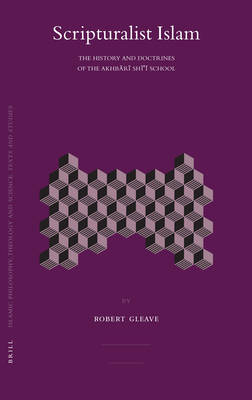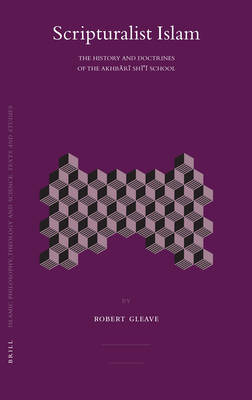
- Afhalen na 1 uur in een winkel met voorraad
- Gratis thuislevering in België vanaf € 30
- Ruim aanbod met 7 miljoen producten
- Afhalen na 1 uur in een winkel met voorraad
- Gratis thuislevering in België vanaf € 30
- Ruim aanbod met 7 miljoen producten
Zoeken
€ 302,45
+ 604 punten
Omschrijving
The Akhbārī School dominated the intellectual landscape of Imāmī Shiʿism between the Seventeenth and early Nineteenth Centuries. Its principal doctrines involved a reliance on scripture (primarily the sayings or akhbār of the Shiʿite Imams) and a rejection of the rational exegetical techniques which had become orthodox doctrine in Imāmī theology and law. However, the Akhbārīs were not simple literalists, as they are at times portrayed in secondary literature. They developed a complex theory of exegesis in which texts could be interpreted, whilst at the same time remaining doggedly committed to the ability of the revelatory texts to provide answers to theological and legal questions arising within the Shīʿī community. This book is the first in-depth study of the intellectual development and historical influence of the Akhbārī School.
Specificaties
Betrokkenen
- Auteur(s):
- Uitgeverij:
Inhoud
- Aantal bladzijden:
- 368
- Taal:
- Engels
- Reeks:
- Reeksnummer:
- nr. 72
Eigenschappen
- Productcode (EAN):
- 9789004157286
- Verschijningsdatum:
- 29/08/2007
- Uitvoering:
- Hardcover
- Formaat:
- Genaaid
- Afmetingen:
- 168 mm x 244 mm
- Gewicht:
- 793 g

Alleen bij Standaard Boekhandel
+ 604 punten op je klantenkaart van Standaard Boekhandel
Beoordelingen
We publiceren alleen reviews die voldoen aan de voorwaarden voor reviews. Bekijk onze voorwaarden voor reviews.








